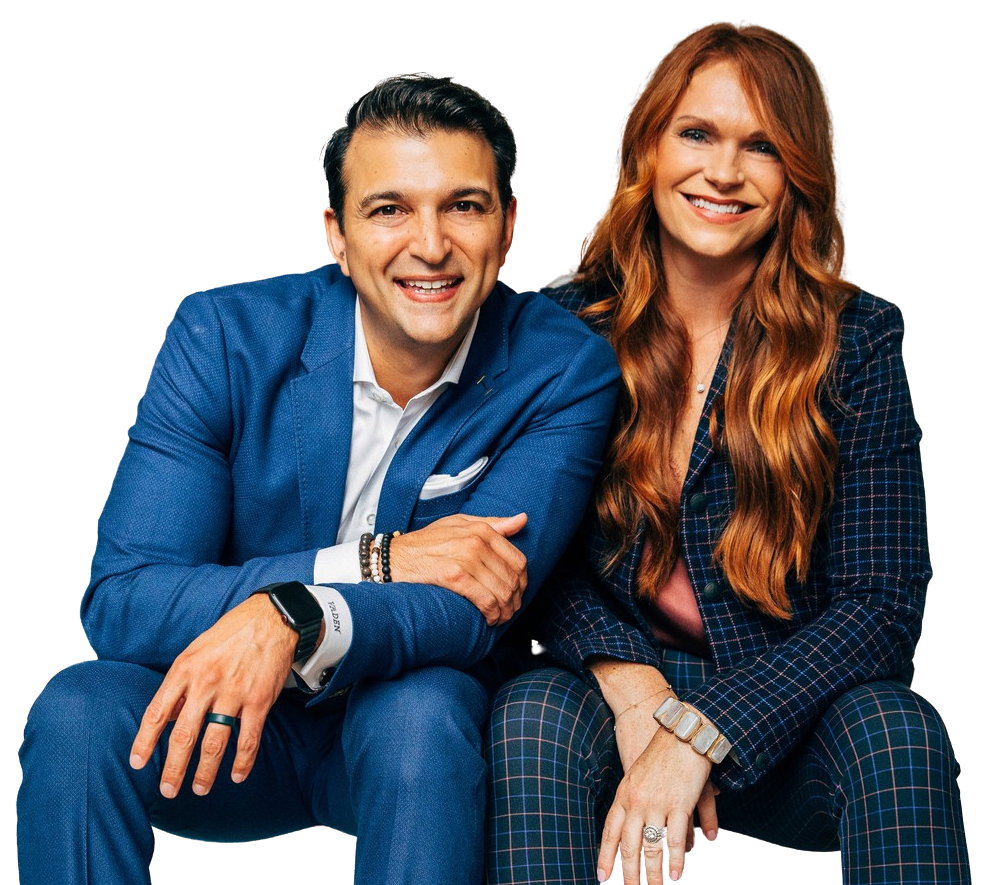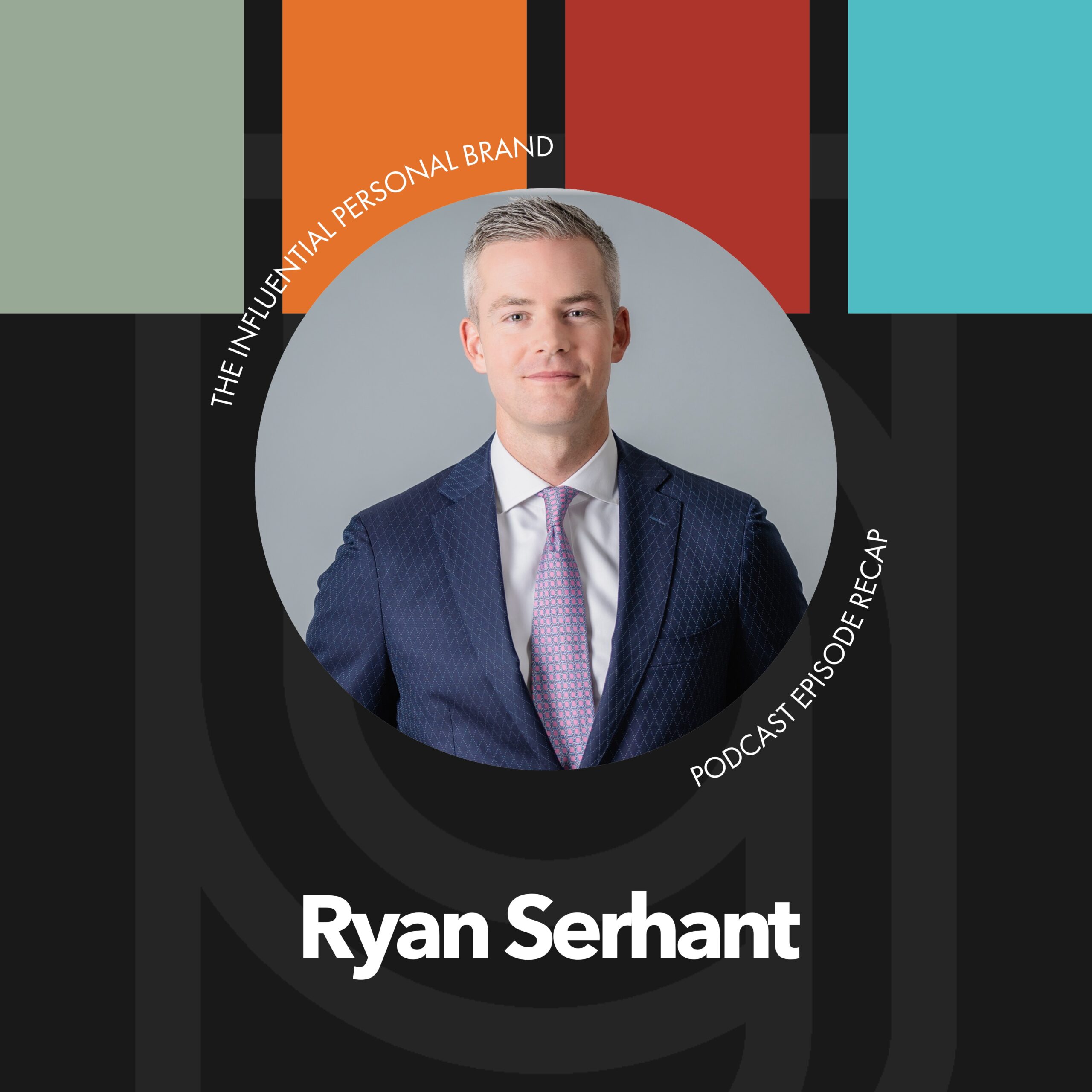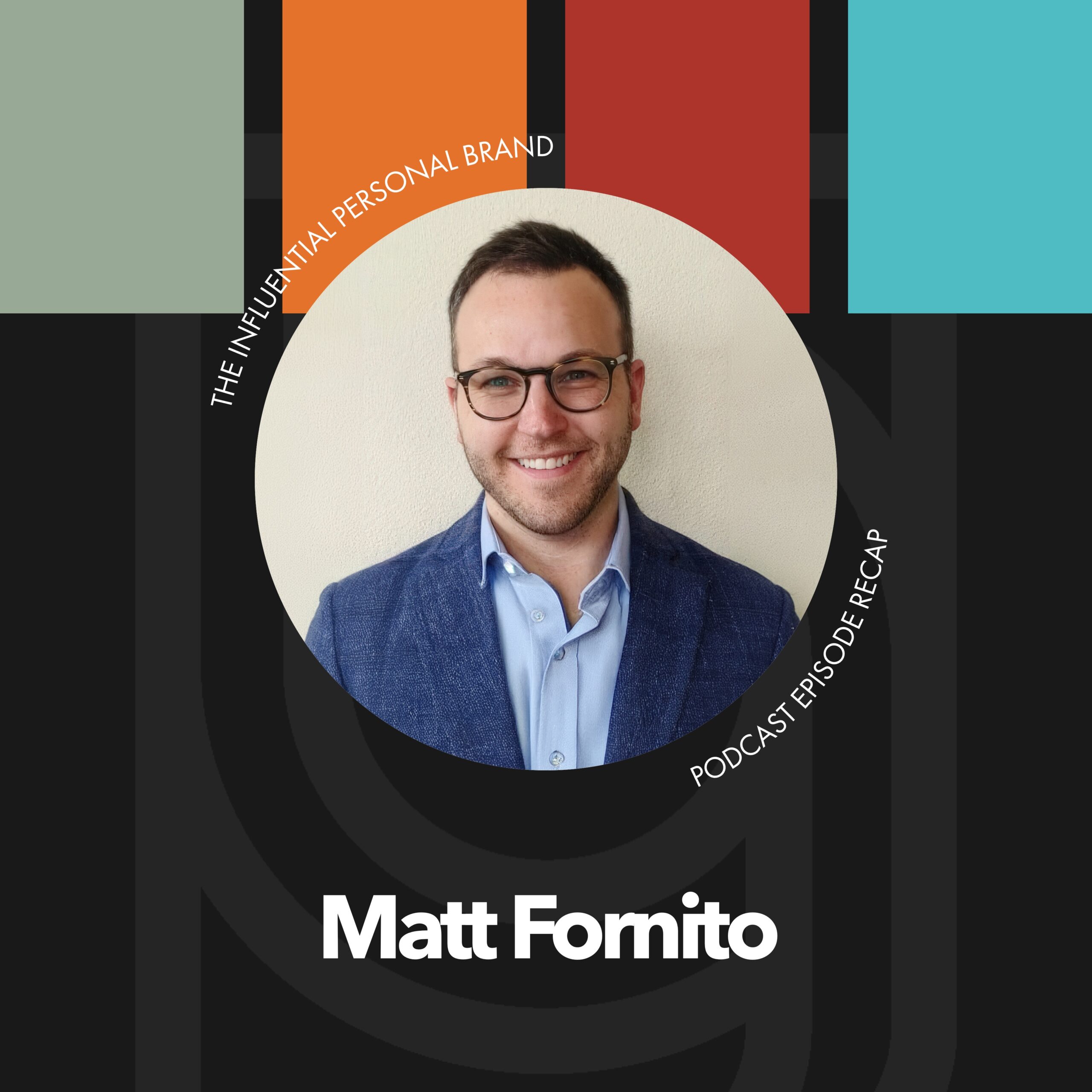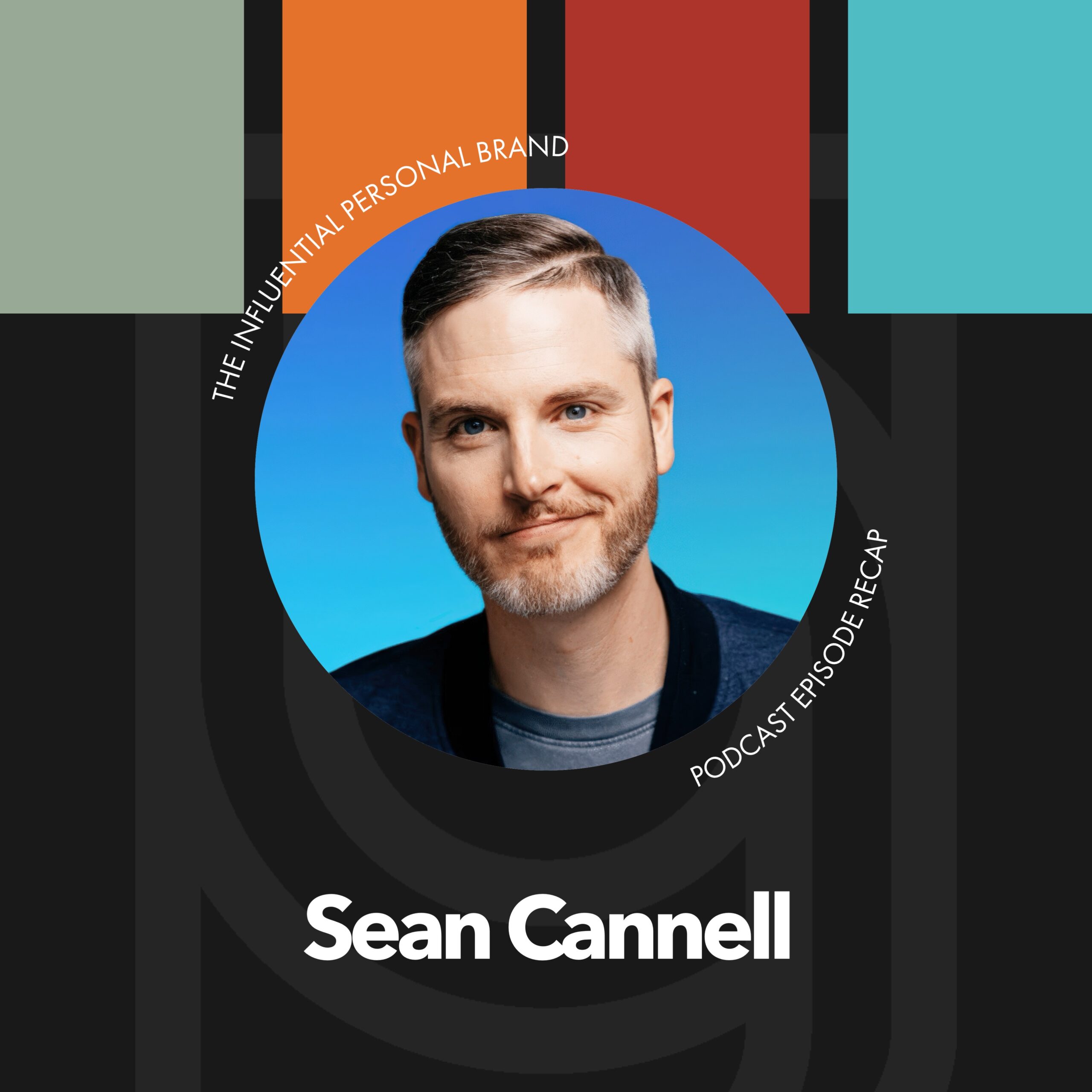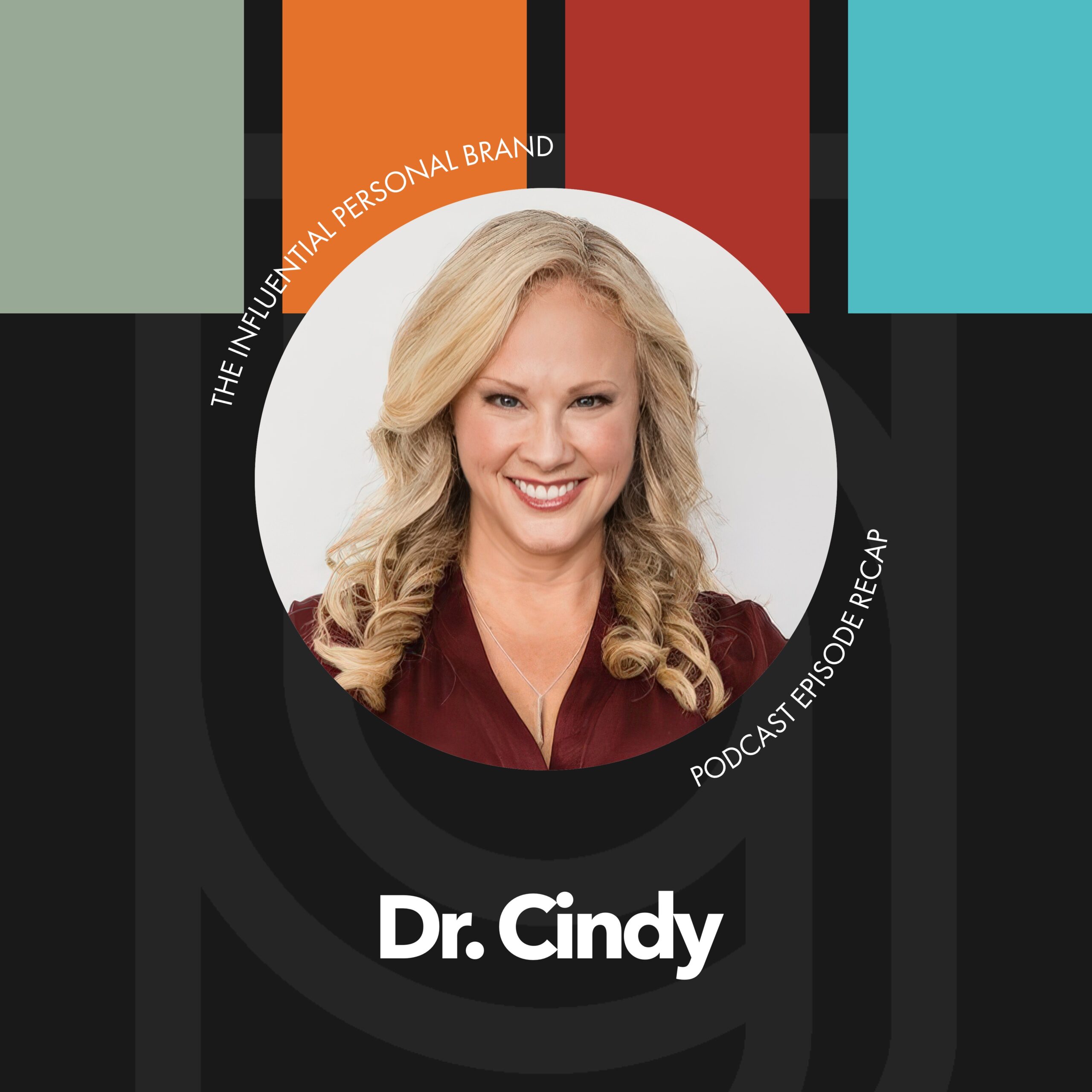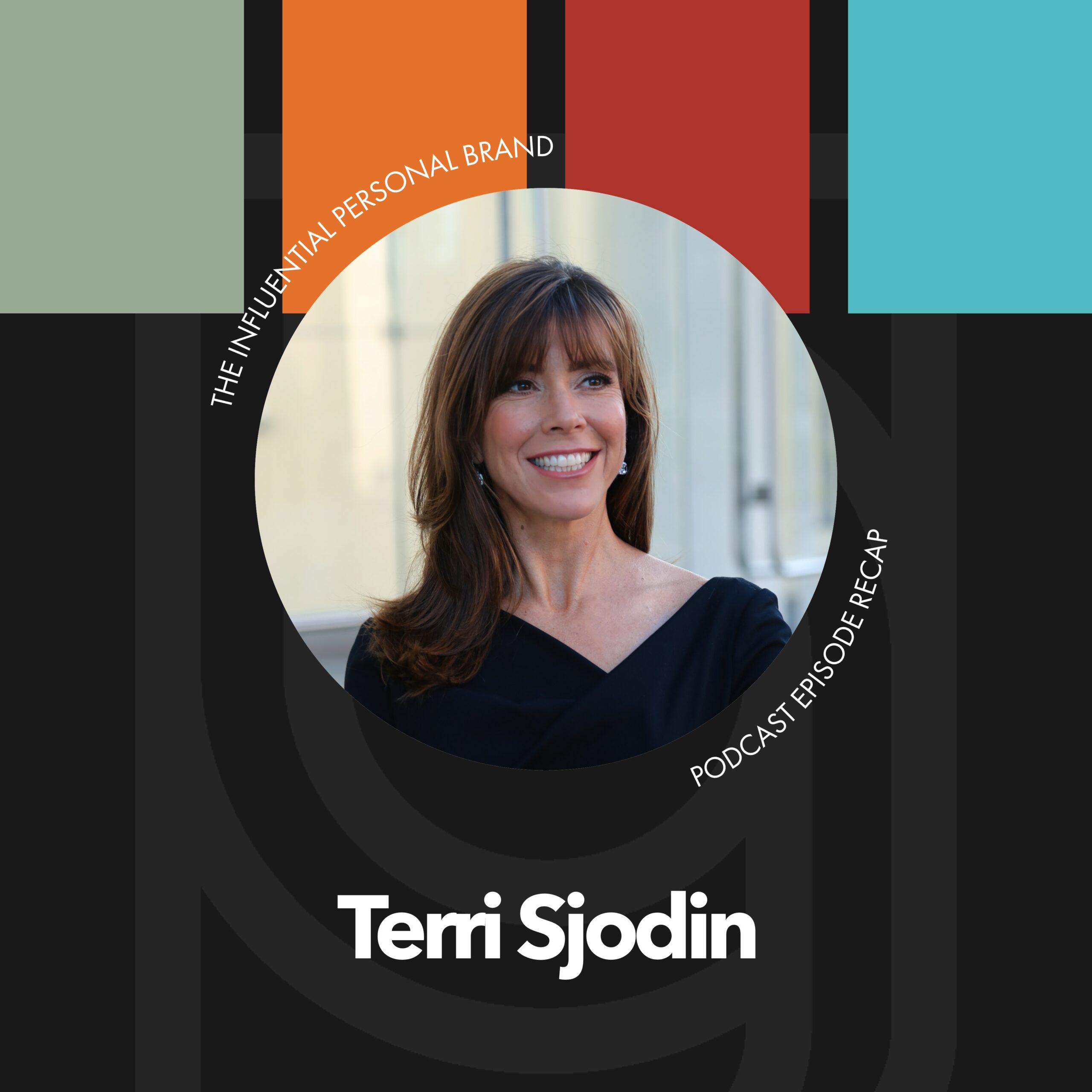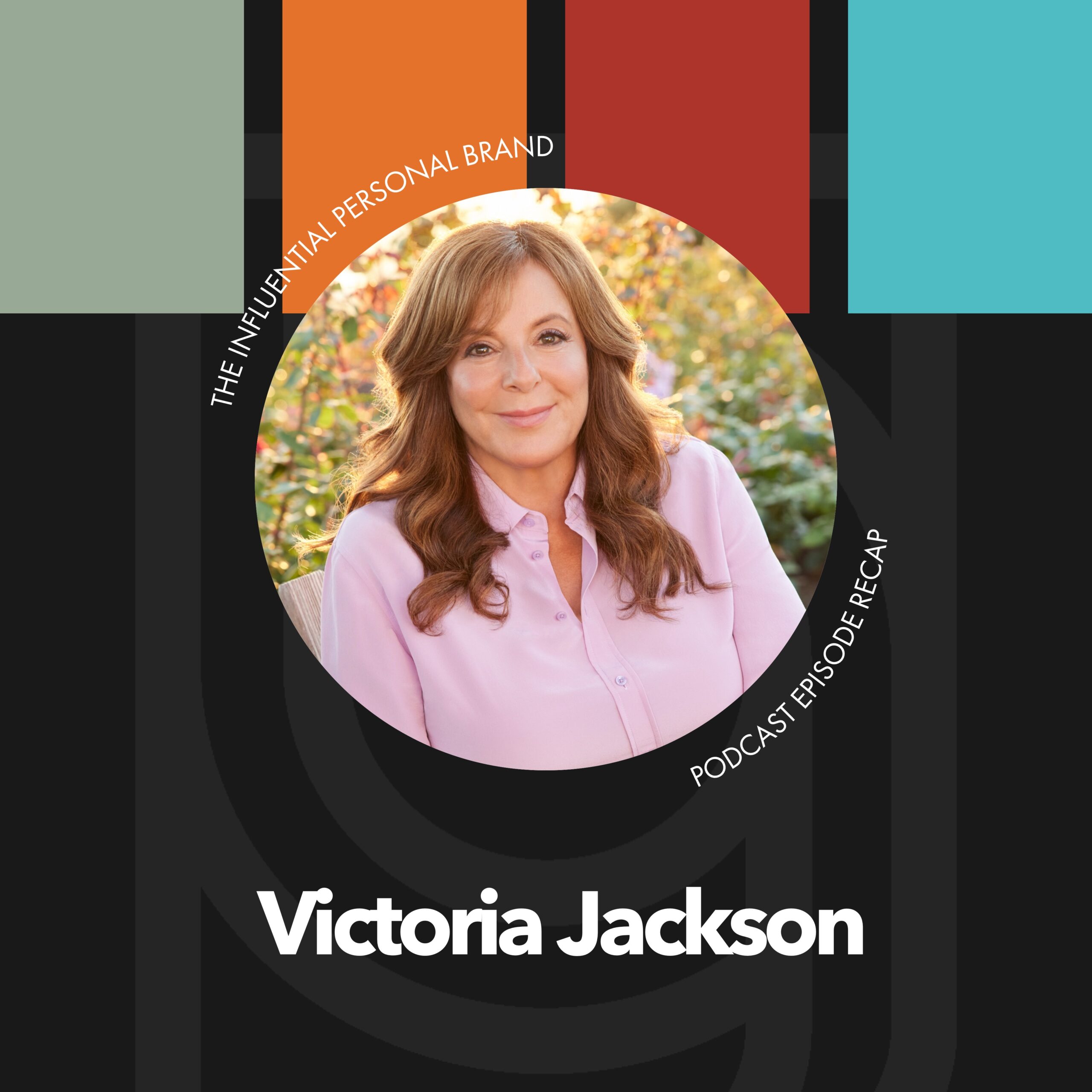RV (00:02):
Welcome back to the influential personal brand podcast recap edition. Today, I am joined by my cohost of my wife of amazing wonder and beauty and brilliance, AJ Vaden. We’re talking about I think a topic that’s super, super relevant to things that AJ is interested in as a true entrepreneur herself. How do entrepreneurs use their personal brand to launch their startup and the interview that we did with Claire Diaz, Ortiz, who’s a long time Silicon valley influencer, I would say. And, you know anyway, fascinating AJ. And I we met her. Do you remember what was that? What was the event we were at that we met her?
AJV (00:42):
I think it was at that leadership event that we had gone to read like Jesus.
RV (00:49):
So it was Ken Blanchard’s. Yeah, it was a Ken Blanchard.
AJV (00:52):
We’d like Jesus event. I’m recalling correctly. I could have made that up, but that’s okay.
RV (00:57):
Yeah. Yep. Yeah. That’s right. So so anyways, just to dive into it, you know, I think this interview was interesting because I think it was more focused towards kind of the traditional entrepreneur than more of like the, you know, kind of modern influencer
AJV (01:15):
Or business owner, CEO, executives, anyone in that business category.
RV (01:20):
So maybe not your kind of classic author, speaker, coach person, but more of like a, a leader of a business and asking the question, like, why does it matter to have a personal brand? You know,
AJV (01:33):
If you’re not, yeah.
RV (01:35):
Like if you’re not selling a video course or a coaching program, then does this, does this all still matter? And you know, w the first point takeaway for me was where she was talking about how one of the things that she does now is she’s an investor and she gets to go to these investor meetings and they see pitches and yada yada, and she said, well, look, no matter how you think about it as an entrepreneur, as the founder of anything, it’s your job to share the story of your thing with the world, whether it’s a nonprofit, or it’s a whatever, a sports team or a, or a, a SAS company or a widget, it’s the founder’s job to figure out how to share the story with the world. And, and there’s only a couple of ways to do that, right? It’s like either you have a, you build a sales team and they make a bunch of cold calls and they go tell everybody about it. Or you have a huge advertising budget and you spend a bunch of money so that you tell people about it, or you do something more organic, which is basically through personal branding and the, and the things that we talk about. And I guess that was a big light bulb for me to go, gosh, so much of what we teach at brand builders group directly applies to the traditional entrepreneur, just because of that, because of that one point alone. And it wasn’t, it didn’t stick out in my mind so much until she said that, no,
AJV (02:59):
That’s, that’s really good. My first point was although there are great PR people at the end of the day, it’s really up to you. I think there’s so many things in life that we want to outsource to someone else. It’s, you know, there’s oh, I’m drawing a blank on Harry said this Kiyosaki, rich dad, poor dad. Talking about how there is, there’s no such thing as a New York times, best writing author. It is a New York times best selling author. And, you know, it’s so many people throughout our community at brain builders group, this question of, or just assumption, I’ve got a question. It’s an assumption that the publisher sells your books. No, they do not. They publish books. They do not sell books. And, you know, I think there’s so many things where it’s like, well, who’s going to get the story out there and who’s going to get it on TV and who’s going to get on it.
AJV (04:01):
Well, most of the time, it’s you, that doesn’t mean you won’t have help and assistance, but that’s your job, right? It’s like, you want people to learn about your company, your products or services, then go and tell them. And that’s what I love about personal branding is, and I think this is in the wise words and one of our good friends, Jay Baer, it’s like, you have the ability to be your own media company. So go and do it. Don’t rely on other people go be your own media person, right? You have the ability to do that. Like as individuals, we are our own media companies, and I was sharing this with Rory over the weekend. And I don’t know all the details. I didn’t read the whole story. I’m a headline reader in the news. So I don’t know all the details. I know just enough to be dangerous.
AJV (04:50):
Please don’t pass out. This was fascinating. And very much to this point where I saw that the young individual who films, the murder of George Floyd recently was awarded a Pulitzer for investigative journalism. I, this was a young teenager who had the thought, maybe they weren’t a teen or young adult who had the thought of something is going on here. I’m going to film it and look at what it has created across America and the world like that. You are your own media person. Like you are your own media company. Like you have that ability. Now. It’s like, there’s been entire movements. So there’s been black lives matter. But if you years ago, there was the me too movement that all started by people saying, I’m going to take stand. I’m going to share my voice. I’m going to do it in my own way, because I can be my own media company with the power of social media, plenty of bad things about social media, but there’s equal good things too. And I think as, as business people, as entrepreneurs and executives, CEOs, why don’t you think you have the same power to do that? You want people to learn about your products and your company’s mission and your services and how you’re different. Well, get yourself out there and tell people about it. But at the end of the day, it’s a great PR is up to you. Not some PR company.
RV (06:11):
No. Wow. Yeah. That’s that is, that is empowering and challenging at the same time. It was on that note, on that note about PR this was one, my second takeaway was, was Claire said, basically she was talking about reframe PR as moment making as like you know, think of it less as like, oh, there’s a press release of something we’re doing. And more of like, how do you create this special moment for people? And, you know, it made me, it reminded me of a couple of things where like Taylor swift would send, you know, personal video messages or show up to certain people’s birthday parties. You know, that would request and she’d get thousands. But occasionally she would show up at one because it was like, it was this huge moment where everyone couldn’t believe it. And it went viral like, oh my gosh, Taylor swift is at my birthday party.
RV (07:05):
And that’s so genius. And it’s so cool. Like it’s both cool and genius in terms of its effectiveness. And, you know, I I remember lewis saying this when we interviewed him for the influential personal brand summit that by the way, there, there’s a link to that on our website. If you, if you go to brand builders, group.com and then I think it’s resources, there’s a, you know, you can get all these video interviews that we did. And, and on that specific interview, I remember lewis saying that he tries to organize this whole business around one or two big moments every year. And so it’s like they really have like one or two really big things that they do. That’s like gonna push them to the next level. And so just thinking of PR as moment making for your customers versus like press releases about, you know, stuff about you. That was, that was good. I thought that, and
AJV (08:02):
That’s a game changer and this was technically my third point, but I’ll consider this my second point since we’re on the subject of it, because I thought the same thing I thought, you know, reframing PR is moment making versus some announcement or some press release, which quite honestly is tired and old. And really who cares? No offense to all of us doing it. We, we asked, included like Rory and I had a conversation less than two weeks ago about putting some press releases out about our new study and going through this. It’s like, well, that is so boring. Like who wants to read a press release about something that some company is doing that may or may not have any implications to them or their business. And instead it’s like, no, how do we create a moment of this? And here’s the thing that I loved about this. This is what I had really highlighted underneath. This is that you have to come up with a long-term of interesting, wow.
AJV (09:00):
Is the power of moment making it’s. What are you doing? That is interesting. That’s like, you’ve got to have a longterm strategy of interesting, because that is where the moments are made. It’s in the interesting, it’s in the unique it’s in the out of the ordinary. So what kind of strategy do you have as an entrepreneur business owner, executive CEO to go? What are the interesting moments? The interesting things that we’re doing that would be newsworthy or attention grabbing, because that is what we draw our attention to. We all know that media is sensationalized. Why? Because we, they know it works. Like we want to hear the things that are out of the ordinary that are uncommon, that are, you know, wildly unbelievable, good or bad, unfortunately. It’s totally sensationalized because they know that’s what grabs people’s attention. So what are you doing? What is your strategy of being interesting? I love that. I thought that was brilliant.
RV (10:01):
That’s a great one. That’s a great one. I bolded and underlined that [inaudible] quote for the, for the, for the ages. so my third takeaway was just about social media. She said, Claire said this, I think pretty much directly. She said with every passing year, there is more and more pressure to have some type of online presence. That’s true. It’s not the fad thing. Like we’re so far past that it’s just more and more and more. And so now it’s like, you got to get on the, you gotta get on board with this ship. Like it’s sailed, you’re behind. You need to catch up this. Isn’t like, oh, I, you know, it was hot for awhile. This is phew. This is how people do do business. And so stop asking, do I need social media and start asking, how do I use it to grow our business?
RV (10:50):
And I think there’s a lot of people still reluctant to embrace it, you know, and it’s unfamiliar. And it’s, you know, sometimes in some ways it’s like annoying. I have to deal with this thing, but it’s like, there’s a lot of parts of business that are annoying and difficult and that you have to learn. And, you know, most of us don’t know about taxes and financial statements and legal stuff and corporate entity structure and hiring like HR policies. Like there’s a lot of parts with a business that are necessary that, you know, you just have to embrace. And I think this is one of them and just going, okay, how do we use it? How do we use it to grow our business and coupling it with what you just said, AIG, about what is our longterm strategy to be interesting is, is, is super, super powerful and important. So I thought that was simple, but it was a, it was a takeaway for me.
AJV (11:38):
Yes. I agree. My third point is actually also about social media, but a completely different point. This is something Claire said in the interview, but I kind of latched on to because I find it to be true with myself. And I figured if it’s true with me, it may be true with some of you listening. And so she said, everyone needs to be on social media, but you do not need to be everywhere. You do not have to be on every single platform and posting content every single place in order to have a presence. And she said there are three things that you need to think about. This is directly pulled from the interview. This is directly from Claire, not AGA one. I think about what is your story and what are you trying to share to focus on engaging with the audience you already have. That’s more important than trying to get new audience members.
RV (12:27):
So good, good way.
AJV (12:29):
More time, sharing value and providing value to the ones you have because by natural, the natural by-product of things is you’ll get more, but focus on that. And then to spend some focus on outreach, right? That’s engagement, engage with the audience that you have, right? Don’t just post a bunch of things and then disappear into the wild, beyond her. You have to post and then engage you. This is building relationships, right? This is nurturing your audience. It’s just in a new way. And one of the things that I thought about is like, at a so often, you know, it’s like even we, we teach this at frame builder script, and I most definitely believe in it. And it’s the, you know, it’s like, how do we repurpose content in a variety of places, but at the same time it’s going to, what is my place?
AJV (13:11):
Where are my people? Where is my audience? And what does that audience want on each platform? Because I truly have seen in my own social media presence, my LinkedIn, I have the largest following on LinkedIn, right. That’s where I spent most of my previous life. And it’s where most of my contacts are in terms of engagement and content. It’s a more executive entrepreneur community. That’s, that’s my group, that’s my people. Right. and I, I have so much more success when I post business content, personal branding, content on LinkedIn. I can post the exact same thing on LinkedIn and get 10 times the likes engagement and shares than if I posted it on Facebook or Instagram. Here’s, what’s fascinating. I post a picture of me and my kids on Instagram. It will get 100 times more engagement than any other thing I post that week.
AJV (14:03):
Right. It’s like I have different platforms for different needs, right? So I have really committed that. You know, it’s like all of my business content, my strategy, my personal brand, my company, stuff that is going for LinkedIn. And I’m just going to stop posting it on Instagram because it’s not what they want for me on Instagram. Instagram is they want to know about me and my family and my life, my travels, my kids, they want personal connection and personal engagement. That’s not the case for every individual. That’s just my I’m just giving you an example. And quite honestly, I will be very truthful. I don’t ever get on Facebook. Everything is just automatically shared from Instagram. I cannot tell you the last time I logged into Facebook. So I don’t really know what they want because I’m not paying, that’s not my platform. And I think it’s okay to say no, I’ve got my platforms of choice.
AJV (14:48):
And that is where I’m going to spend my time. I think that’s okay. And then you got to ask yourself, what did they want to hear about on this platform? What audience and I trying to reach here. And it’s not that you can’t repurpose and reshare content. You can, but it’s gotta be with intention, but then you also have to pay attention to what the analytics actually show you of knowing, well, what is your platform? Because by natural it’s like, I would just assume Instagram is where I spend most of my time. So that’s what, and it’s like, well, no, not when it comes to business content, that is not my platform. That is a platform for my personal life. And I have a very business audience for my LinkedIn. And I think just knowing that and just going, I need to be on it, but I do not have to be everywhere.
AJV (15:28):
And I don’t have to be doing everything everywhere, which makes it feel almost a manageable. So it’s just like taking those bite sized chunks and going, this is this platform and this is what I’m going to do there. This is the other platform. And here’s what I’m going to do here. And it just it’s maneuvering what really works for you and what you enjoy doing. Because if you don’t enjoy doing it, you’ll never do it. So you have to enjoy it and then you need it to be reciprocated. Right? You want people to find value in it because it makes you want to do more. So I think just latching onto that, it’s like, yes, you need to be on it. No, you don’t need to be on all of them.
RV (16:05):
Yeah. Yeah. That’s good. That’s a good takeaway. Y’all and I liked what you said there about making sure you enjoy it. Cause if you enjoy it, you’ll show up, you’ll engage. You’ll you’ll naturally do all the things you need to do to be successful. If you don’t enjoy it, it’s going to constantly be like this fight and resistance to, to actually do it. And then it doesn’t. Yeah. It’s a burden that doesn’t actually work out. So well go, go check out the interview. Claire is just super influential, very unique perspective, unique blend of this expertise in entrepreneurship and investing in tech and startups as well as building a very huge and successful personal brand herself and also being one of the early people at Twitter. Very unique perspective, very, very sharp woman agent. I both met her personally. So, you know, she’s got our, got our, our endorsement and hope you enjoy it and keep coming back. We’re grateful for you. We’ll see you next time on the influential personal brand. Bye.






